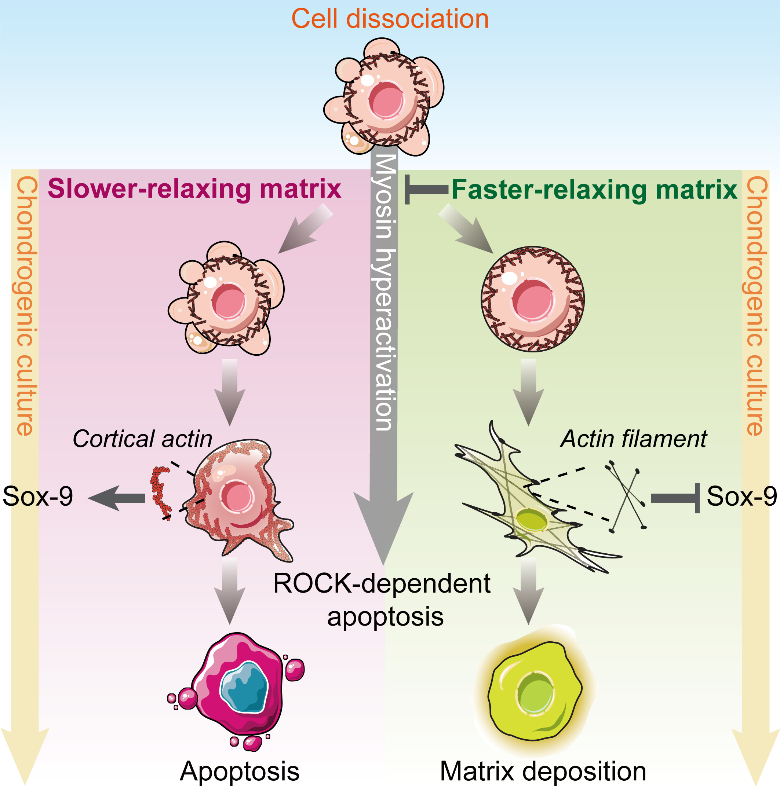Articular cartilage repair has always been a clinical problem. The team of Xingdong Zhang (academician of CAE) from the College of Biomedical Engineering/National Engineering Research Center for Biomaterials took the lead in discovering that type I collagen based gel can induce stem cells to differentiate into chondroblastic cell lines and regenerate articular cartilage, suggesting that damaged articular cartilage can be regenerated and repaired. Cartilage-induced matrix, which is used to wrap mesenchymal stem cells (MSCs), has successfully completed more than 70 clinical trials of articular cartilage defects, with good results. However, the mechanism of type I collagen based hydrogel inducing chondrogenic differentiation of stem cells is not very clear, which has a certain impact on the application of the research results.

“---Here, we investigated how viscoelasticity, a time-dependent mechanical property of collagen hydrogel, coordinates MSC cytoskeleton changes at different stages of chondrogenesis. The viscoelasticity of collagen hydrogel was modulated by controlling the gelling process without chemical cross-linking. In slower-relaxing hydrogels, although a disordered cortical actin promoted early chondrogenic differentiation, persistent myosin hyperactivation resulted in Rho-associated kinase (ROCK)–dependent apoptosis. Meanwhile, faster-relaxing hydrogels promoted cell-matrix interactions and eventually facilitated long-term chondrogenesis with mitigated myosin hyperactivation and cell apoptosis, similar to the effect of ROCK inhibitors. The current work not only reveals how matrix viscoelasticity coordinates MSC chondrogenesis and survival in a ROCK-dependent manner but also highlights viscoelasticity as a design parameter for biomaterials for chondrogenic 3D culture.” (Abstract)

The research findings were recently published in Science Advances under the title of "Collagen Hydrogel Viscoelasticity Regulations MSC Chondrogenesis in a ROCK-Dependent Manner". Yun Xiao, an associate research fellow of Xingdong Zhang's team, is the corresponding author, and Dr. Danyang Huang is the first author. Sichuan University is the sole work unit of this paper.
https://www.science.org/doi/10.1126/sciadv.ade9497
